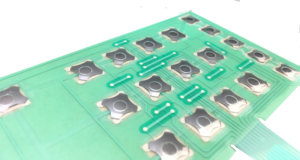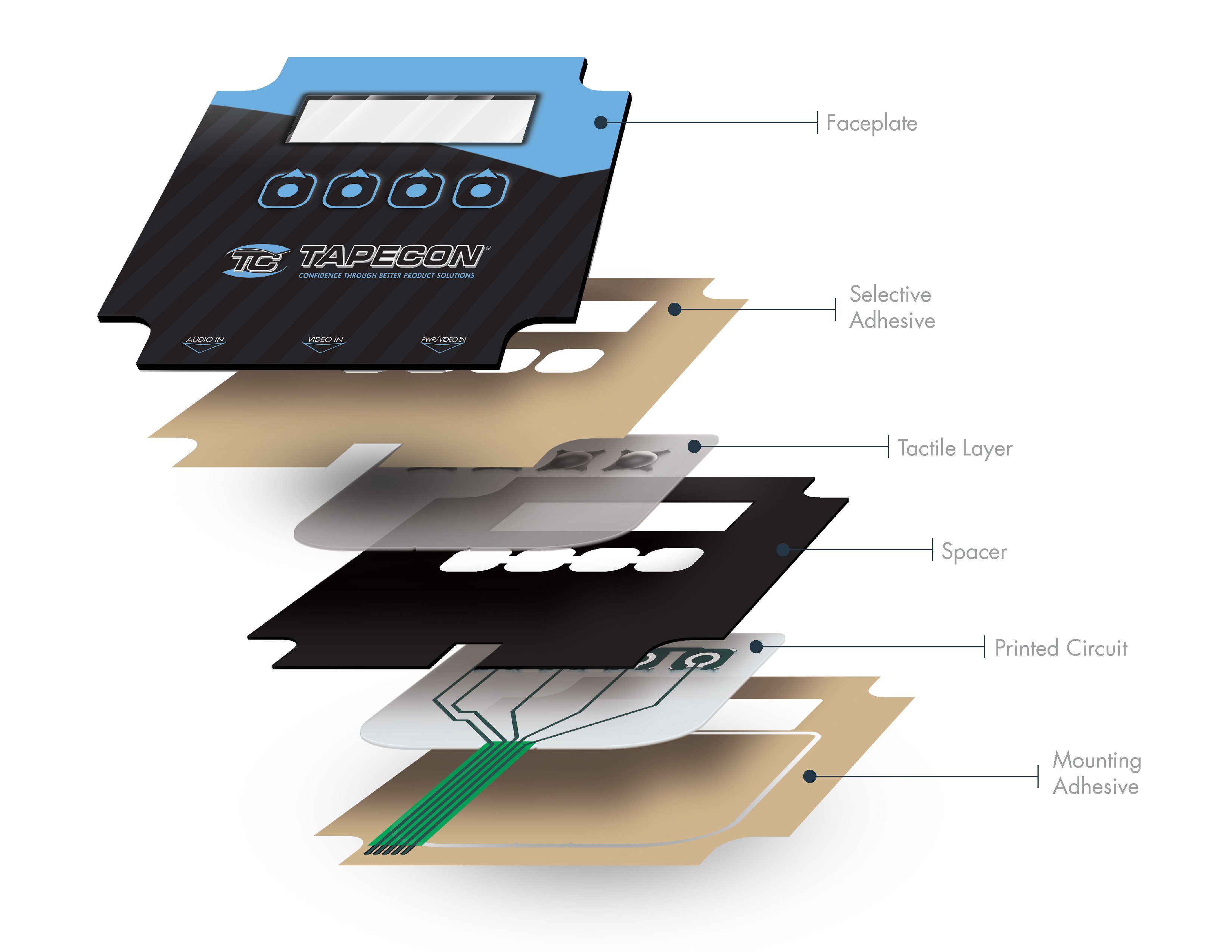Checking Out the Advantages of Membrane Layer Changes for Modern Electronics
The exploration of membrane buttons in modern digital tools offers an interesting perspective on their myriad advantages, particularly in terms of style adaptability, longevity, and cost-effectiveness. As markets proceed to evolve, the function of membrane layer switches in boosting user experience and operational efficiency warrants more detailed exam.
Advantages of Membrane Buttons
Membrane buttons are progressively preferred in contemporary electronic devices due to their countless benefits. One of the main advantages is their small design, which permits space-efficient assimilation into numerous tools. This slim account not only preserves space yet likewise adds to the total aesthetic appeal of digital products.
One more benefit is their resilience. Membrane layer switches are normally resistant to wetness, dust, and pollutants, making them optimal for use in environments where exposure to severe conditions is an issue. This resistance prolongs the life-span of the switches, reducing the need for regular replacements and maintenance.
In addition, membrane changes deal exceptional responsive responses, enhancing user experience. The tactile feedback is often designed to offer a gratifying experience upon activation, which can improve customer complete satisfaction and effectiveness.
Furthermore, the manufacturing process of membrane layer switches is affordable, enabling reduced manufacturing costs contrasted to traditional mechanical switches. This cost makes them suitable for a wide array of applications, from customer electronic devices to commercial machinery.
Layout Adaptability and Customization
The layout versatility and modification options offered by membrane switches over better boost their appeal in contemporary electronics. These switches can be tailored to meet particular visual and useful needs, permitting makers to develop tools that align carefully with brand name identity and user preferences. With numerous options in terms of colors, forms, and dimensions, membrane layer switches can effortlessly integrate into varied item layouts, whether for customer electronic devices, industrial applications, or clinical tools.
In addition, the capacity to include graphics and symbols straight onto the switch surface area boosts usability while decreasing the need for extra labeling. This integration not only simplifies production processes but likewise adds to a sleeker general appearance. The layout can be additional customized with attributes such as backlighting, responsive responses, and multi-layer constructions, offering enhanced customer interaction.

Longevity and Ecological Resistance

In addition, membrane switches can be engineered to be chemically resistant, making them appropriate for applications in industrial environments where direct exposure to solvents and cleaning agents is typical. The encapsulation of electronic elements within the membrane framework offers added security versus ecological stress and anxieties, ensuring trusted performance even in difficult conditions.
In addition to physical longevity, membrane switches over exhibit outstanding resistance to UV light, preventing degradation and discoloration with time (membrane switch). This particular is specifically useful for outdoor applications, where extended exposure to sunshine can jeopardize various other switch types
Ultimately, the toughness and ecological resistance of membrane layer switches over make them an optimal selection for a vast array of modern electronic devices, from medical equipment to consumer electronics, ensuring regular performance and individual fulfillment throughout various applications.
Cost-Effectiveness in Manufacturing
Cost-effectiveness in production is a significant benefit of membrane layer switches, making them a recommended selection for manufacturers in different industries. The manufacturing procedure of membrane changes typically includes fewer products contrasted to conventional buttons, which lowers resources expenses. This structured production process not just conserves cash but additionally lessens waste, lining up with modern sustainability goals.
Furthermore, membrane buttons can be produced using automated strategies, enabling high-volume outcome with minimized labor prices. The integration of innovative printing technologies additionally improves efficiency, making it possible for producers to attain detailed layouts and performances without incurring significant additional expenses. This scalability makes certain that manufacturing can adapt to altering market demands without compromising quality or increasing costs.

Additionally, the lightweight nature of membrane layer switches adds web link to cost financial savings in basics delivery and handling, in addition to in the overall style of digital tools. By removing large components, manufacturers can enhance the total product style, thus enhancing market competitiveness. In general, the cost-effectiveness of membrane switches not only benefits manufacturers financially yet additionally facilitates advancement and rapid item advancement in the dynamic landscape of modern electronics.
Applications in Different Industries
Adaptability sticks out as a hallmark of membrane switches, allowing them to find applications across a vast array of sectors. In the medical care sector, these switches are indispensable to medical gadgets, offering user-friendly interfaces for equipment like infusion pumps and analysis equipments. Their resistance to wetness and simple cleansing make them optimal for environments needing strict health standards.
In the automobile sector, membrane switches add to the capability of control panels and control board, providing a sleek, modern-day appearance while ensuring sturdiness versus harsh problems. Their light-weight layout additionally supports total vehicle performance.

Moreover, commercial machinery uses membrane layer buttons for functional controls. Their durable nature and customizable functions accommodate the particular needs of diverse applications.
Verdict
Finally, membrane layer switches offer substantial advantages for modern-day electronic devices, including layout versatility, durability, and cost-effectiveness. membrane switch. Their adjustable functions and resistance to environmental factors make them ideal for a vast array of applications across various sectors. As technical needs remain to evolve, the adaptability and effectiveness of membrane switches over position them as a crucial component in boosting individual experience and driving technology within the affordable landscape of digital devices